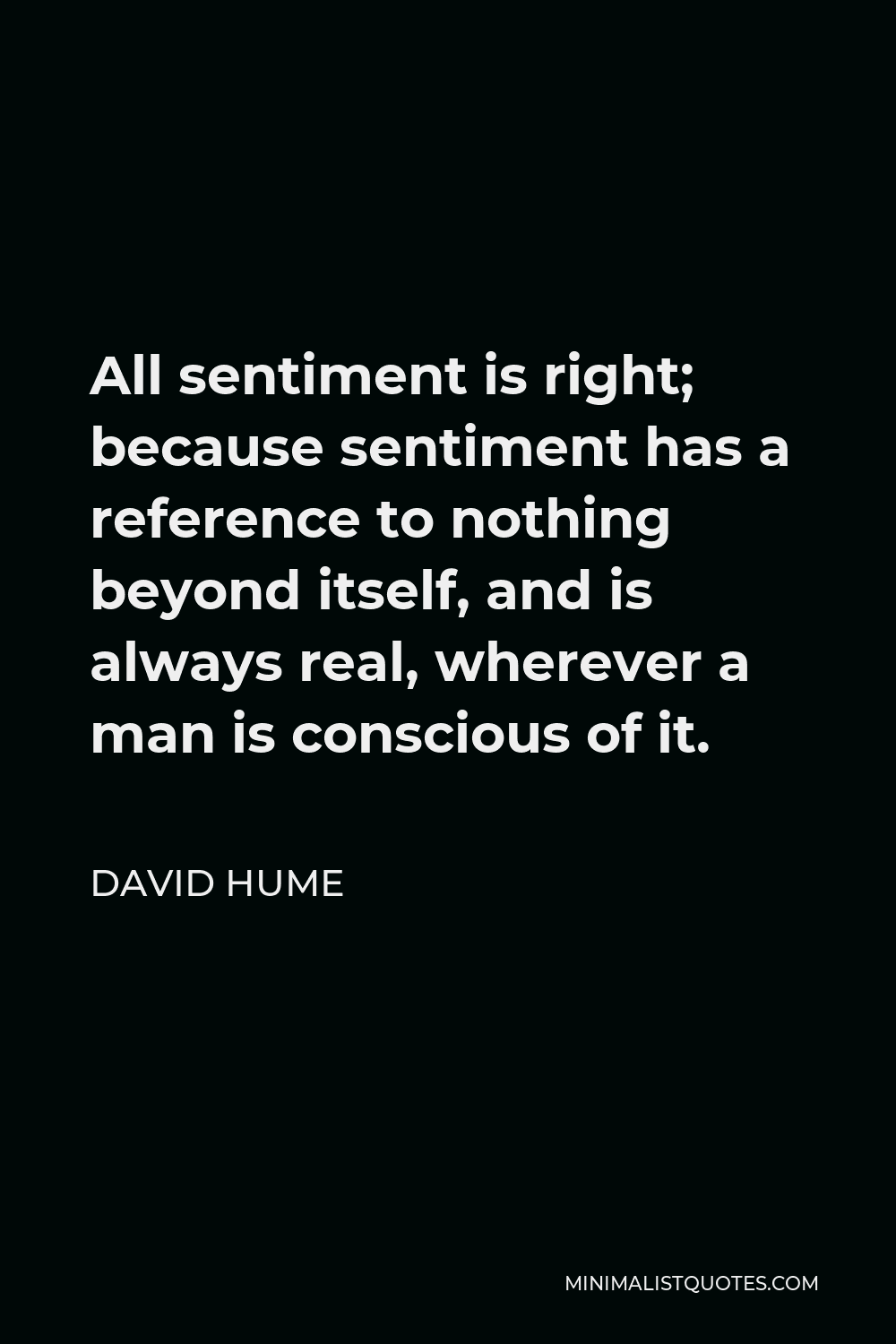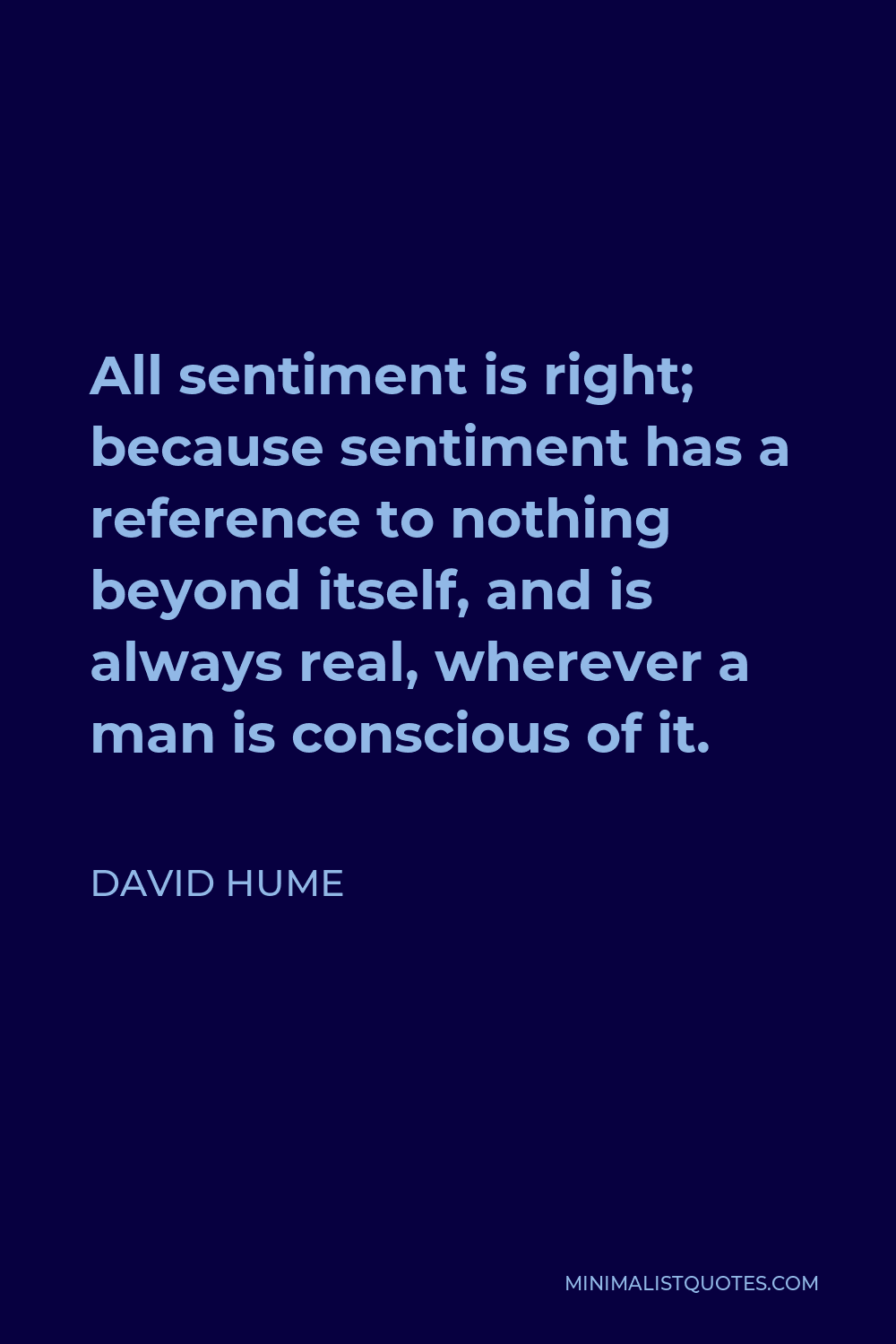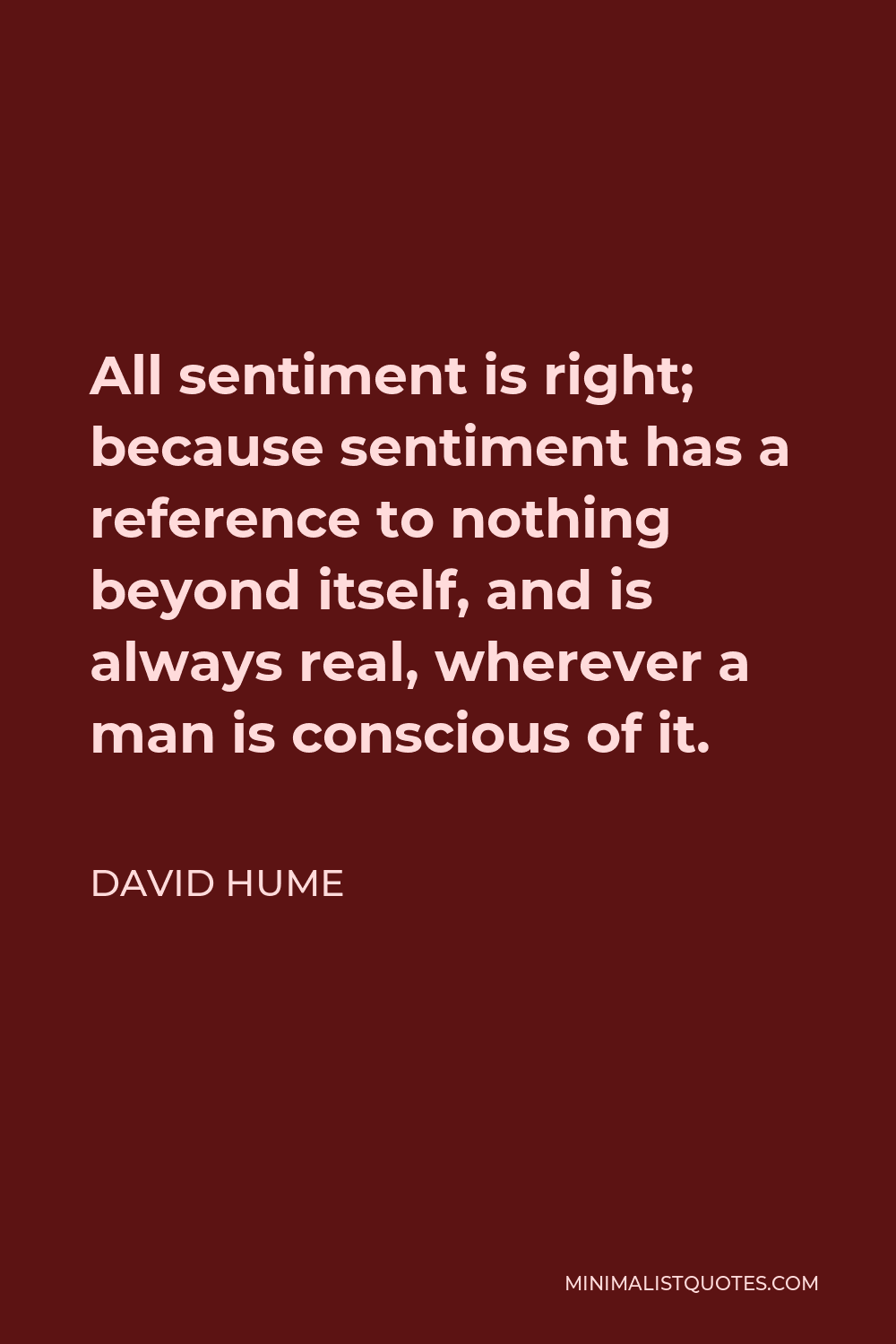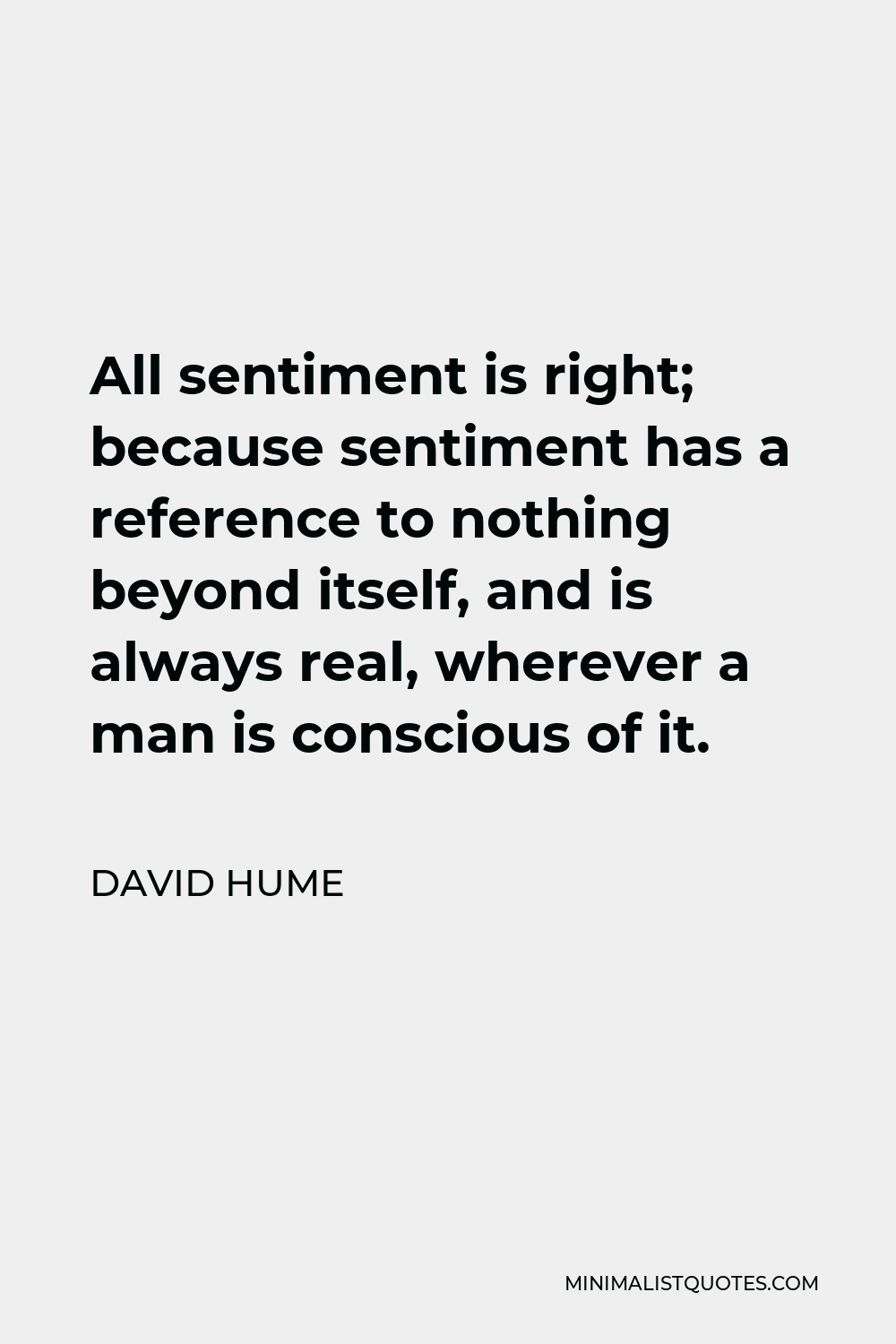As every inquiry which regards religion is of the utmost importance, there are two questions in particular which challenge our attention, to wit, that concerning its foundation in reason, and that concerning it origin in human nature.
DAVID HUMEAll sentiment is right; because sentiment has a reference to nothing beyond itself, and is always real, wherever a man is conscious of it.
More David Hume Quotes
-





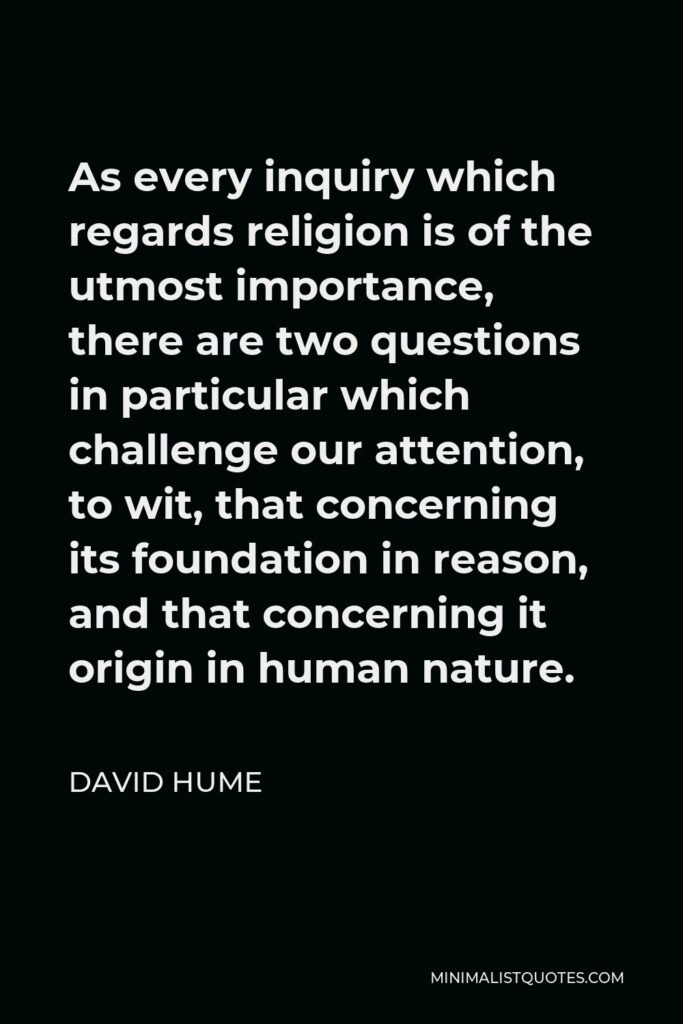

-





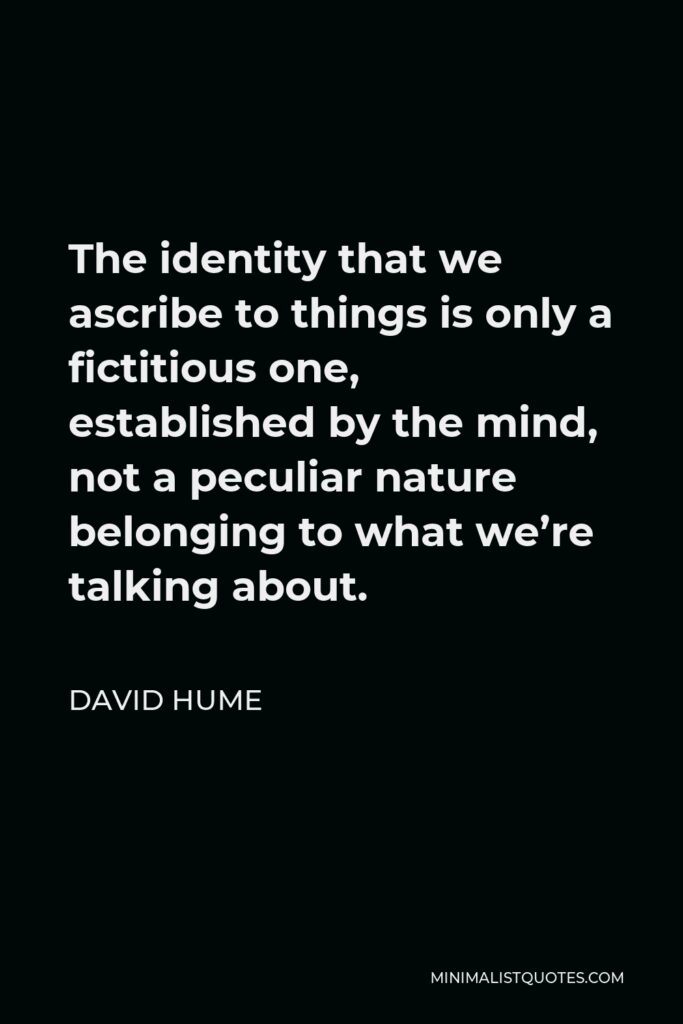

The identity that we ascribe to things is only a fictitious one, established by the mind, not a peculiar nature belonging to what we’re talking about.
DAVID HUME -







The Crusades – the most signal and most durable monument of human folly that has yet appeared in any age or nation.
DAVID HUME -







Liberty of any kind is never lost all at once
DAVID HUME -





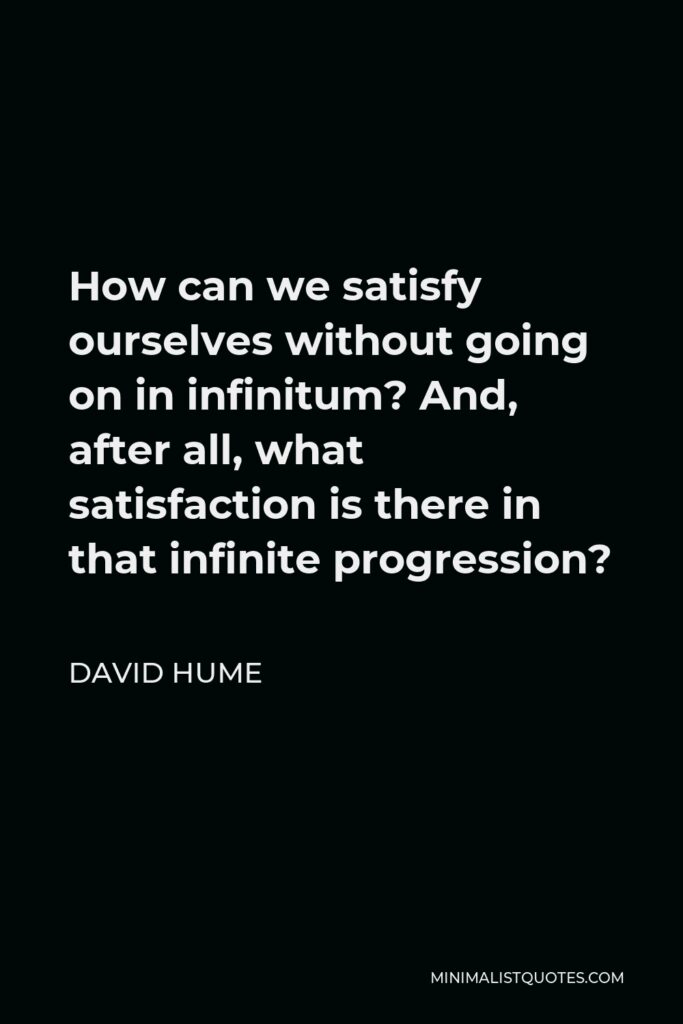

How can we satisfy ourselves without going on in infinitum? And, after all, what satisfaction is there in that infinite progression?
DAVID HUME -





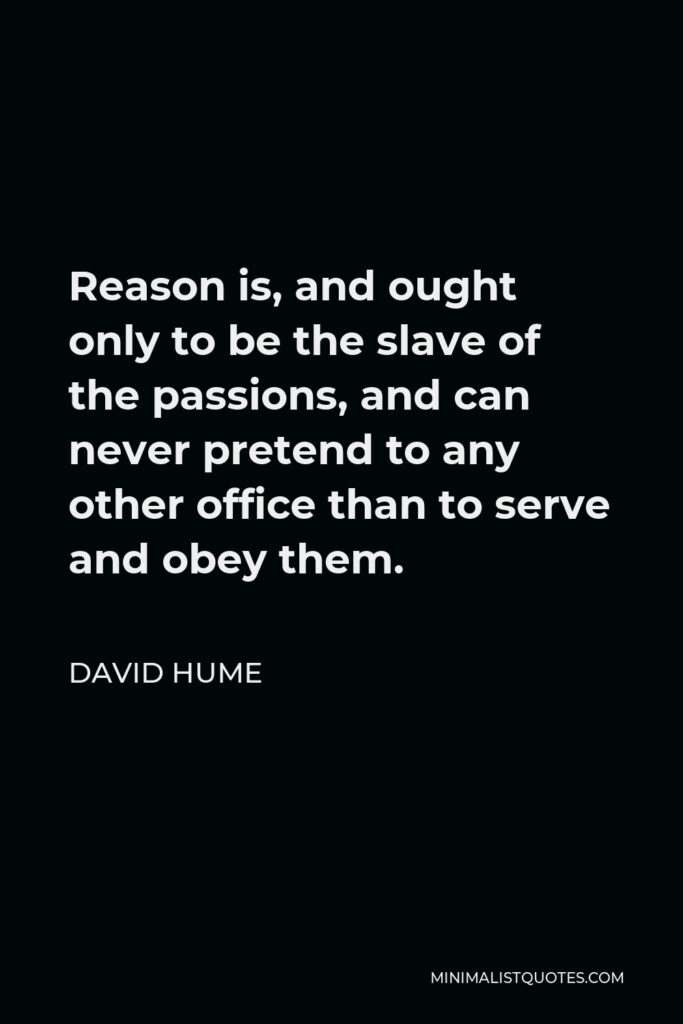

Reason is, and ought only to be the slave of the passions.
DAVID HUME -







In public affairs men are often better pleased that the truth, though known to everybody, should be wrapped up under a decent cover than if it were exposed in open daylight to the eyes of all the world.
DAVID HUME -







Beauty in things exists in the mind which contemplates them
DAVID HUME -







It is difficult for a man to speak long of himself without vanity.
DAVID HUME -







But the greatest part of mankind float between vice and virtue.
DAVID HUME -





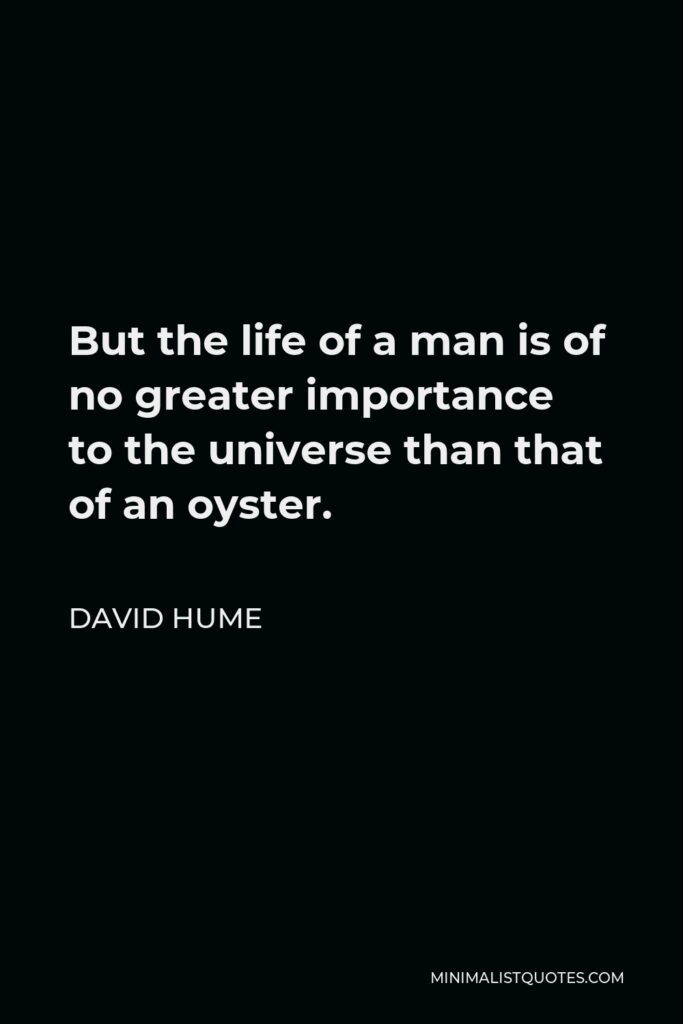

But the life of a man is of no greater importance to the universe than that of an oyster.
DAVID HUME -





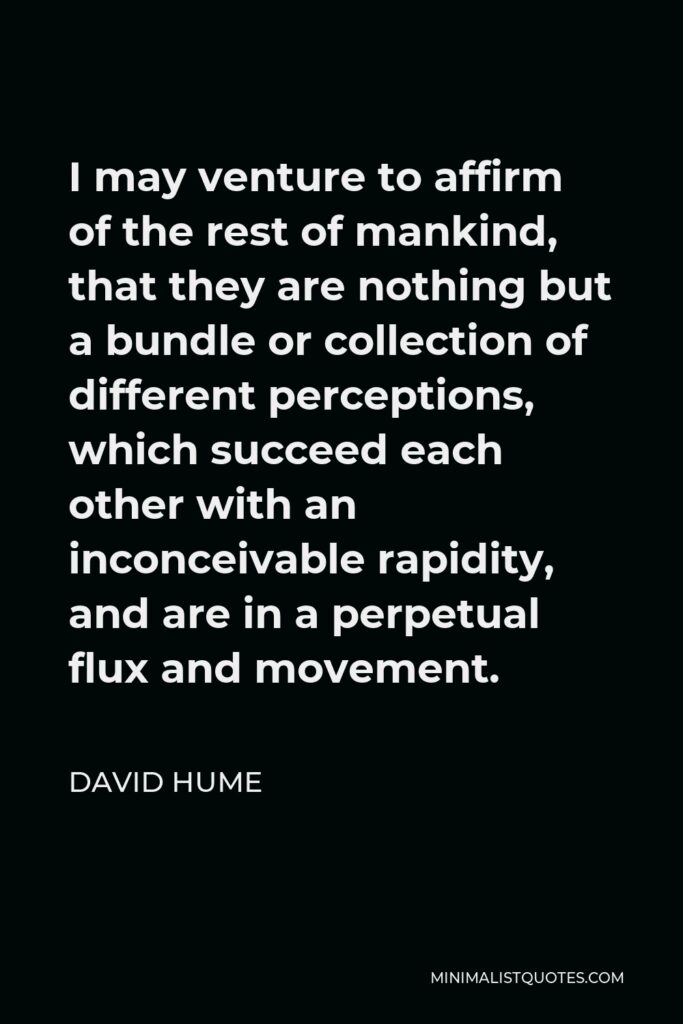

I may venture to affirm of the rest of mankind, that they are nothing but a bundle or collection of different perceptions, which succeed each other with an inconceivable rapidity, and are in a perpetual flux and movement.
DAVID HUME -







To philosophers and historians, the madness and imbecile wickedness of mankind ought to appear ordinary events.
DAVID HUME -





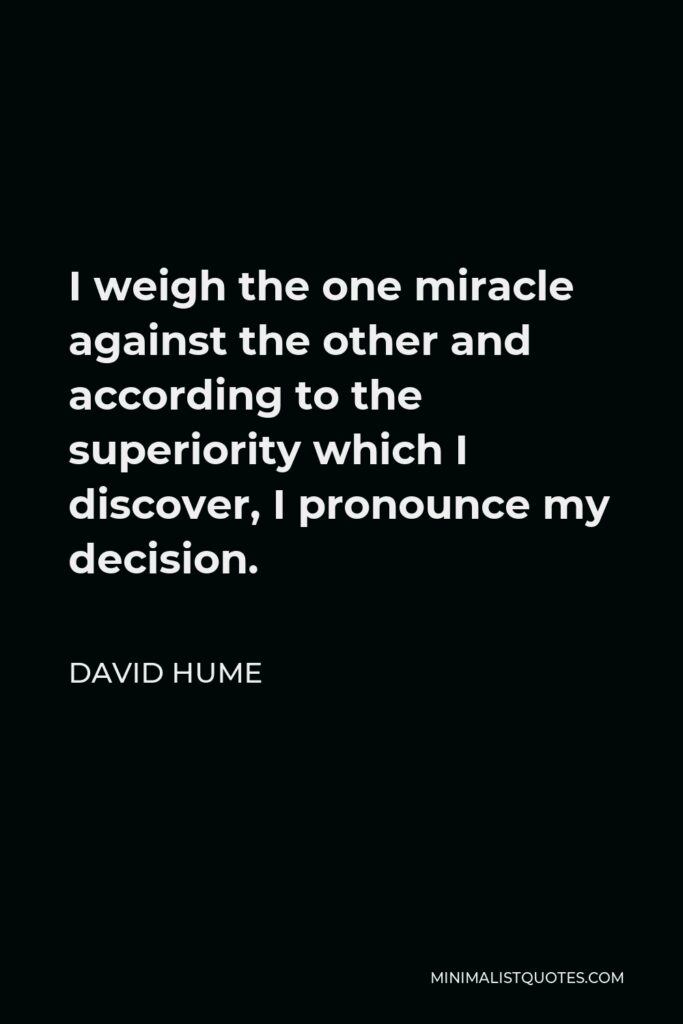

I weigh the one miracle against the other and according to the superiority which I discover, I pronounce my decision.
DAVID HUME -





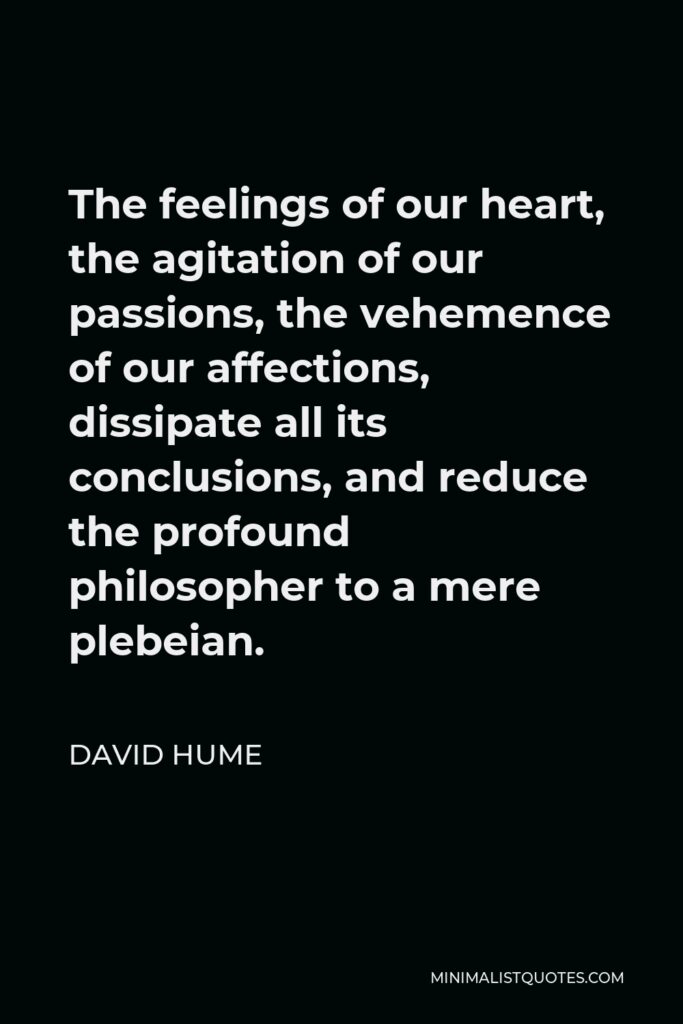

The feelings of our heart, the agitation of our passions, the vehemence of our affections, dissipate all its conclusions, and reduce the profound philosopher to a mere plebeian.
DAVID HUME -





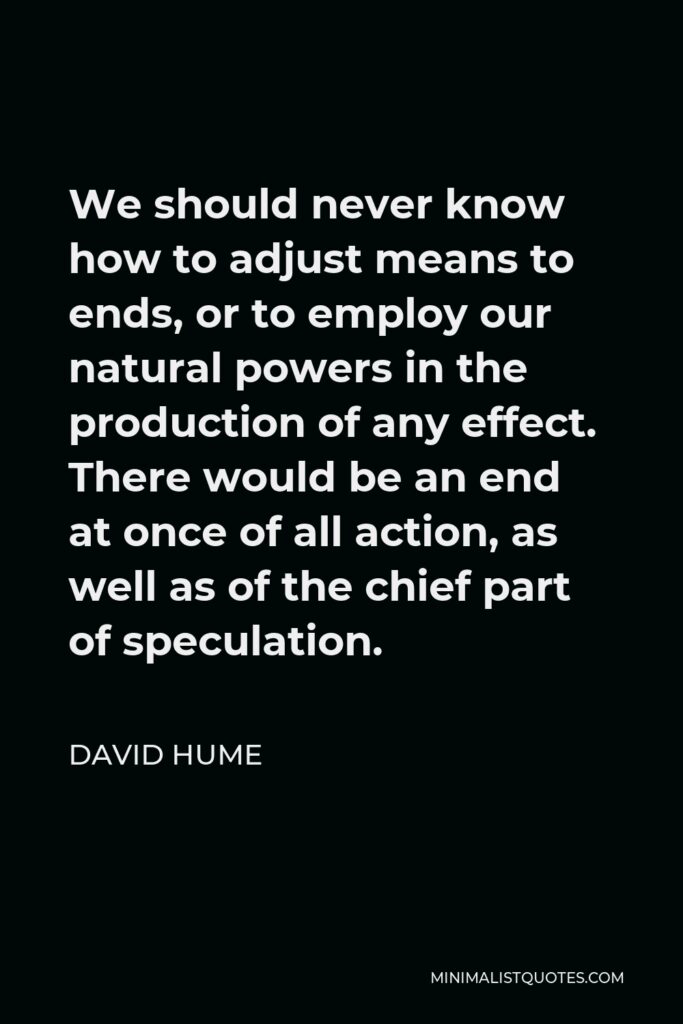

We should never know how to adjust means to ends, or to employ our natural powers in the production of any effect. There would be an end at once of all action, as well as of the chief part of speculation.
DAVID HUME
